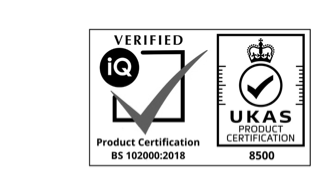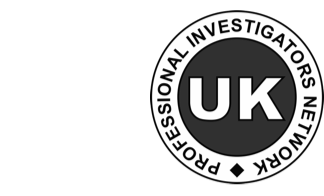Employee Investigations and Background Checks
Employee Investigations can be a sensitive matter but when conducted carefully they can provide businesses with valuable evidence of employee-related issues such as Moonlighting, Theft, False injury claims and long-term sickness
Discreet Investigation
Employers wishing to investigate staff that are deliberately undermining the company often feel trapped when considering the complex legalities surrounding the employment relationship, the use of an external investigator may seem a daunting thought. There are the discrimination laws, the data protection considerations of disclosing employee details with a third party, the HR considerations – whether there are any alternative options to gather the evidence, and the legal implications that dictate whether the evidence will have an impact on the case.
Employee investigations may be required to validate the severity or legitimacy of an accident at work, the need for long-term sick leave, or cases of workplace theft. An incredibly common case is moonlighting – employees who are working elsewhere whilst still employed and without their employer’s consent. Many employment contracts have clauses that stipulate conditions for additional employment but generally, these matters are only investigated if the employee is claiming they are unable to work or return to work whilst working elsewhere in a similar role.
The use of a professional investigator can provide a business with quantifiable evidence that can be used to protect them from these forms of misconduct and substantiate claims before approaching an employee solely on the grounds of suspicion. Accusation without evidence can exacerbate issues that may already be present between the employer and employee so it is vital that the correct steps are followed before doing so, we have partnerships with a number of HR consultancies and legal firms who are able to provide invaluable and impartial expert advice that is used to establish whether there are sufficient grounds to conduct an investigation.
Quick Tips for hiring a private investigator to conduct an employee investigation
- Establish where your concern has come from and is it a reliable source of information.
- Conduct a workplace investigation meeting. Discuss the issue with your HR department (or contact us for ad-hoc advice from one of our HR partners) to establish whether there is any disciplinary action required or if the correct disciplinary process has already been followed – This may include reviewing your contract of employee and company policies to establish whether their behaviour amounts to a breach.
- Draw out clear objectives and the evidence needed to achieve those. The more specific the better – once these objectives are established it will be easier to understand exactly what evidence will be required.
- Allocate a budget and a timescale, some investigations may take more time or financial resources than you are willing to commit to the job so it is important to get an idea of any limitations before the investigation starts.
- Choose a reputable investigation firm that has experience working with cases of a similar nature – this can be done by looking for membership in reputable trade bodies such as The Association of British Investigators, The Institute of Professional Investigators and the World Association of Private Investigators, in addition to this, there are industry-specific standards such as BS 102000 (The provision of Investigative Services) that will help you make your choice.
- Give the investigator clear and concise instructions, and where possible involve the company’s HR professionals and or Legal advisors to ensure that everybody is on the same page, and has a good understanding of the objectives.

Working with Reveal Private Investigations is always a collaborative process, we will always provide an investigation plan that we are fully transparent about, this way we can ensure that you are aware of the work we are doing, the money that is being spent and the progress that is being made. Interim updates will be provided throughout the investigation and we take an agile approach to planning which allows us to adapt to the needs of dynamic and potentially fast-paced investigations. Upon completion, all of our evidence will be provided in the form of a written investigation report, supported by time and date stamped photography, High-Definition video footage and witness statements where necessary. The robust evidence we submit will always be admissible as evidence whether that is needed for a workplace investigation process, disciplinary hearing, an employment tribunal or a legal case, should the evidence be disputed, our team is prepared to provide witness testimony and defend our work in court.
Value
We plan our investigations meticulously to leave nothing to chance, and we keep employers up to date at every stage. Many of our clients say this is why they see us as trusted partners of their business, working towards a shared goal.
- GDPR Compliant
- Expert Non-Partisan HR Advice
- Complementary Consultation & Collaborative Planning
- Reports Presented to Admissible Evidential Standards
- Experienced Across all Areas of Employee Investigations
Get in Touch to Discuss about Employee Background Checks
Why would I investigate one of my employee's?
There are rumours an absent employee may be working somewhere else.
Employee Investigations
When an employee is on long-term sick leave, most employers treat the situation with sensitivity and offer support as best they can. If you suspect an employee is working elsewhere while receiving sick pay, you might be worried about how to investigate while respecting their employment rights and rights to privacy. By discussing the case with us we can establish whether there are sufficient grounds for an investigation. Using covert surveillance techniques, long lens cameras and covert body-worn cameras we can then obtain evidence that can be used to validate or challenge the employee’s claims.
Do I have grounds to dismiss an employee for gross misconduct?
Employee Investigation report
If an employee’s behaviour amounts to gross misconduct they will likely be dismissed at short notice, there are a number of elements that can dictate whether a dismissal was fair or unfair but ultimately an unfair dismissal claim can cost your business significantly. It is for that reason that providing evidence of their conduct is imperative to your business’s defence. This may be straightforward if it occurred within the workplace, or there is documented evidence such as emails/call recordings. Where misconduct has occurred outside of the workplace an employee investigation can provide crucial evidence to justify your decision.
Can I investigate an employee legally?
Workplace Investigations
What our customers said
Employee Private Investigation Case Studies
Injury At Work Claim
No To Furlough
Moonlighting Taxi Driver
Corporate Private Investigation Services

We assist employers, who might otherwise avoid investigating dishonest staff because they lack experience or fear legal action.

Lying about injuries for financial gain creates stigma and undue stress for those who rely on compensation and injury payments.

Becoming a victim of fraud can be stressful and financially devastating so investigating it professionally and effectively is vital.

Process servers provide a trusted method of delivery that ensures documents have been received.

Mystery shoppers collect vital intelligence about the customers experience and can find evidence of unscrupulous retailers.

Enquiry agents can conduct covert and overt enquiries, obtaining additional information to support investigations.
Employee Investigations FAQs
In most cases, an internal employee investigation is recommended prior to the instruction of a private investigator. In addition, it is important to ensure that the right disciplinary procedure has been followed to maximise the strength of any evidence that will be produced.
We have seen a rise in employee investigation requests since the post-pandemic return to work, many people were offered more flexible working routines and whilst it can be a fantastic perk for some staff, others may take advantage of the flexibility. We have seen cases in which employees have fraudulently claimed physical disabilities in order to force their employer’s hand in offering long-term remote working and cases where employees have sought additional employment whilst claiming to be unfit to return to work.
Yes, the evidence we present is suitable to be used in an employment tribunal, this is particularly prominent where there is evidence that the employee has been behaving in a manner contrary to that stated in their grounds for the tribunal.
For example, an employee was dismissed on the grounds they were incapable of doing their job, they were unwilling to accept changes to their position that included light duties, and wouldn’t engage with occupational health to establish the extent of their condition. They took the business to the tribunal and alleged disability discrimination but the evidence provided by our private investigators proved they were not disabled.
FAQ
More often than not the initial investigation will be done internally and by a line manager or HR representative.
The problem with this is that they may not have the necessary investigative skills or equipment to establish what is happening outside of the workplace, they may be biased as they know the employee, the internal investigations may take longer than required, and the results may not be as thorough leading to poor decision making. An experienced employee investigator will be able to provide a non-partisan report detailing their findings and this can be produced as evidence to support or disprove a claim.
The length of the investigation will depend on the nature of the case, the severity of the accusation and the level of evidence that is required. Employee investigations tend to range from 10-21 days; however, some cases are solved in a couple of days and some take in excess of 30 days
That would depend on the type of surveillance, the severity of the incident being investigated and the particulars in their contract of employment. Where electronic monitoring and overt surveillance such as email monitoring and CCTV are put in effect permanently, or over a long period, the employer must declare this to any employees affected.
The usual process would be for an employer to disclose to the employee that they are going to launch an investigation into their behaviour, this is usually done in a disciplinary setting within the business, the employer may have this written into their company policy and contract of employment to set out criteria which may trigger an investigation and types of investigative techniques they may use. For the fair procedure, if an employer feels that the employee’s behaviour amounts to gross and serious misconduct or is criminal and that informing them of the investigation may hinder the opportunity to gather evidence of their conduct, they may have grounds to conduct covert surveillance without informing the employee.
Get in Touch
Related Articles

The Importance of Nanny Background Checks
In today’s fast-paced world, many people consider hiring a nanny to care for their children so that they can achieve a better work-life balance. While

The Role of Social Media Investigations in UK – Navigating the Digital Landscape
When picturing a private investigator, it’s easy to think of someone in a discreet vehicle taking photos using a long-lens camera in order to compile

How Do Private Investigators Help HR Professionals In Walsall?
Employee theft in the UK has risen by 19% in the last year, amounting to 6,000 reported incidents. While that statistic may seem shocking, theft

 Surveillance
Surveillance Matrimonial Investigations
Matrimonial Investigations Bug Sweeping
Bug Sweeping GPS Vehicle Tracking
GPS Vehicle Tracking Lie Detector Test
Lie Detector Test Person Tracing
Person Tracing Employee Investigations
Employee Investigations Asset Tracing
Asset Tracing Fraud Investigations
Fraud Investigations Injury & Insurance Investigations
Injury & Insurance Investigations



